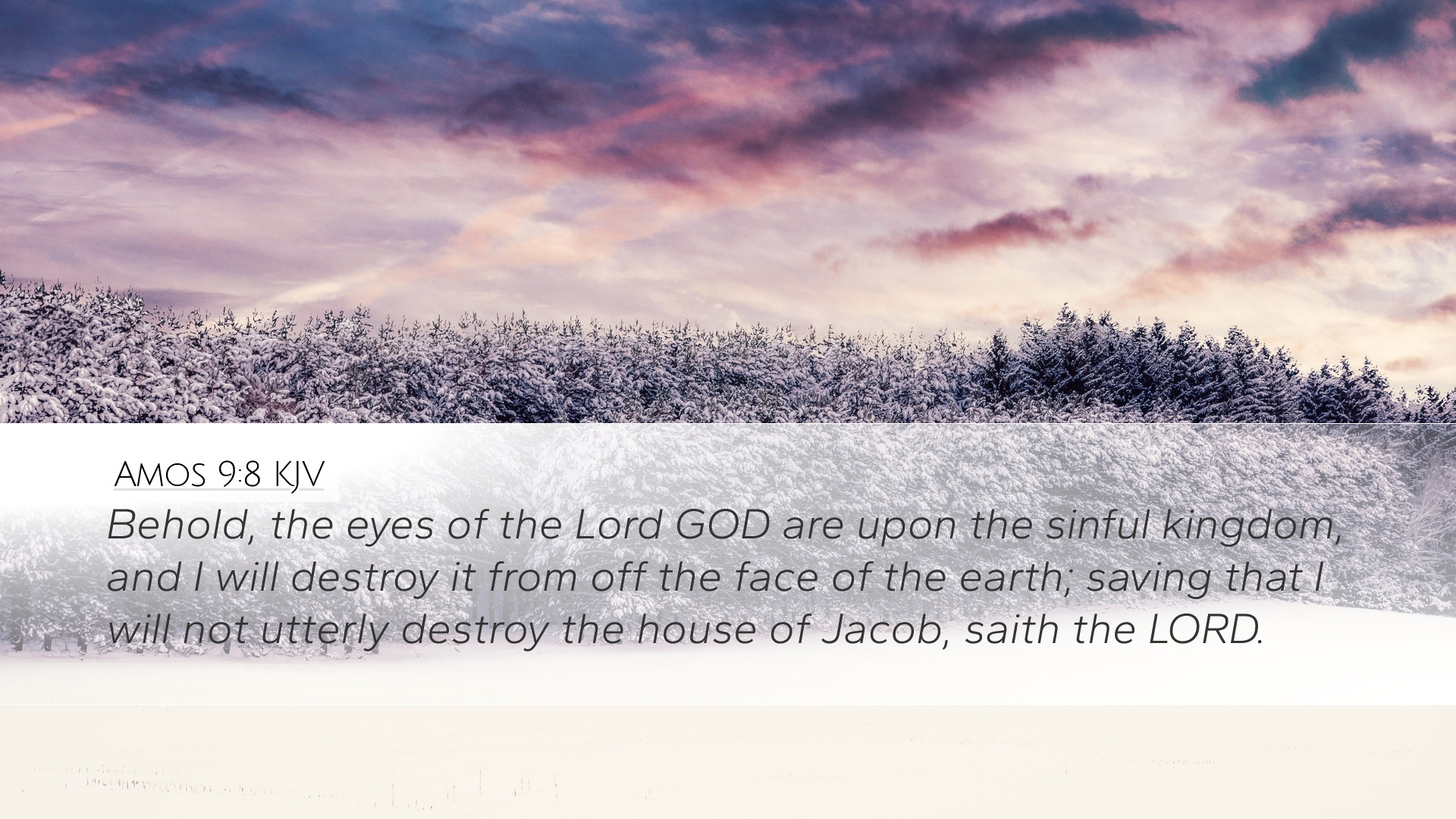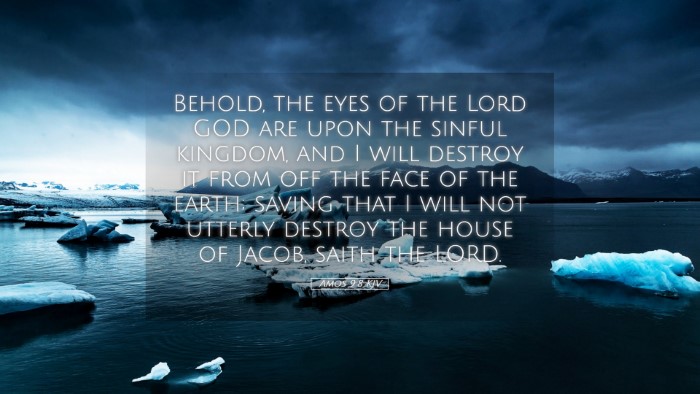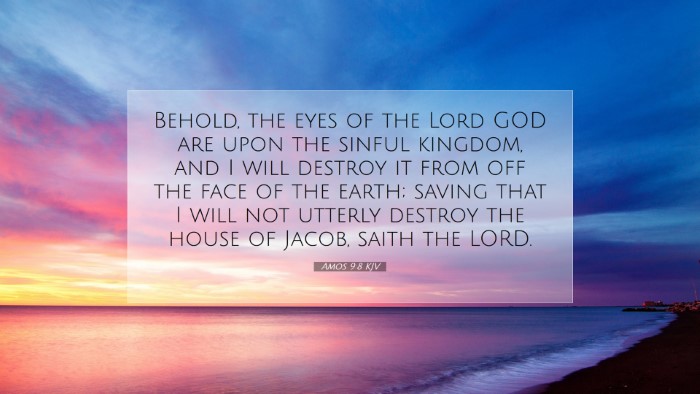Old Testament
Genesis Exodus Leviticus Numbers Deuteronomy Joshua Judges Ruth 1 Samuel 2 Samuel 1 Kings 2 Kings 1 Chronicles 2 Chronicles Ezra Nehemiah Esther Job Psalms Proverbs Ecclesiastes Song of Solomon Isaiah Jeremiah Lamentations Ezekiel Daniel Hosea Joel Amos Obadiah Jonah Micah Nahum Habakkuk Zephaniah Haggai Zechariah MalachiAmos 9:8
Amos 9:8 KJV
Behold, the eyes of the Lord GOD are upon the sinful kingdom, and I will destroy it from off the face of the earth; saving that I will not utterly destroy the house of Jacob, saith the LORD.
Amos 9:8 Bible Commentary
Amos 9:8 - Commentary Summary
Verse: "Behold, the eyes of the Lord God are upon the sinful kingdom, and I will destroy it from off the face of the earth; saving that I will not utterly destroy the house of Jacob, saith the Lord." (Amos 9:8)
Contextual Overview
Amos is primarily a prophetic book addressing the moral decay and impending judgment upon Israel. The prophet Amos, who hailed from Tekoa, delivers God's message during a time of prosperity in Israel, which ironically coincides with severe social injustices and idolatry. The ninth chapter culminates in a poignant warning of divine judgment while simultaneously offering hope through the preservation of a remnant.
Theological Insights
This verse captures the essence of God's omniscience and sovereignty over nations, emphasizing that the "eyes of the Lord" are ever-watchful over the actions of both Israelites and Gentiles. There carry important theological implications:
- Divine Judgment: The phrase "I will destroy it from off the face of the earth" conveys certainty in divine judgment. Matthew Henry notes that God's judgment is inevitable against nations steeped in sin, underscoring His holy nature that cannot overlook transgression.
- God's Sovereignty: Albert Barnes indicates that God has authority over the kingdoms of the earth and will execute justice by removing those who defy His laws. The term "sinful kingdom" signifies any societal structure failing to uphold righteousness.
- Hope for the Remnant: The assurance that “I will not utterly destroy the house of Jacob” signifies that despite imminent punishment, God’s faithfulness persists. Adam Clarke elucidates that even in judgment, God's covenantal relationship with Israel ensures a remnant will survive, preserving His promises.
Exegesis of Key Terms
Understanding key terms in the verse enhances its interpretation:
- “Sinful kingdom”: This term denotes a system steeped in sin and rebellion against God. It challenges believers to scrutinize societal norms and practices against God's standards.
- “Destroy”: The Hebrew root suggests a comprehensive form of destruction, which can encompass physical, spiritual, and societal aspects. It reflects God’s intense displeasure with unrepentant sin.
- “House of Jacob”: Referencing the descendants of Jacob, this signifies God’s chosen people. Clarke elaborates that the preservation of this house reflects God’s overarching plan for redemption throughout history.
Interpretive Applications
For pastors and theologians, this verse serves as a profound reflection on the nature of God's judgment and grace:
- Call to Repentance: A reminder of the seriousness of sin and the urgency for nations and individuals to repent. Henry emphasizes the necessity of turning back to God to avert His wrath and experience His mercy.
- Pastoral Implications: In ministry, fostering a heart of repentance among congregants is essential. The balance of God's judgment and mercy should inform the preaching of the Gospel as highlighted by Barnes.
- Hope Amidst Judgment: This verse reassures believers of God’s promise to preserve a remnant. Clarke stresses that even in calamity, God's grace operates in the lives of the faithful, allowing them to stand firm.
Conclusion
Amos 9:8 encapsulates a dual theme of God's judgment against sin and His unwavering commitment to those whom He has called. It serves as a powerful reminder of the consequences of national and personal sin while holding forth the hope of redemption for those who remain faithful. In the light of this verse, pastors and scholars are encouraged to cultivate a message that emphasizes both the seriousness of sin and the overwhelming grace of God, fostering a transformative experience within the church and beyond.


